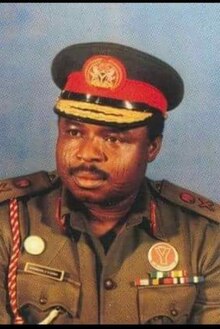Former Nigerian military ruler, General Ibrahim Badamasi Babangida (retd.), has shared the emotional and difficult decision he made in the 1980s to execute his close childhood friend, General Mamman Vatsa, following a foiled coup attempt.
In his newly released autobiography, A Journey of Service, Babangida reveals the hard choices he faced while balancing personal friendship with his duty to protect the stability of the nation.
The book’s launch on February 20, 2025, shed light on the turbulent period, where Babangida had to confront allegations of a coup orchestrated by Vatsa, which threatened Nigeria’s security. According to Babangida, the coup plot was uncovered through covert investigations carried out by military and intelligence agencies.
Initially, Babangida had dismissed the rumours about Vatsa, believing them to be based on jealousy over their long friendship. However, after further investigation, Babangida discovered irrefutable evidence of the plot. He recounts, “When the decibel of the stories rose too high, I confronted Vatsa himself after reporting the rumours to more senior colleagues like Generals Nasko, Garba Duba and Wushishi.”
Despite Vatsa’s denial, the evidence proved otherwise. Babangida revealed that Vatsa had funded officers, including Lt-Col. Musa Bitiyong, to carry out the plot. The military tribunal eventually convicted Vatsa and nine others, and they were executed in March 1986. Babangida writes in his autobiography, “I had to choose between saving a friend’s life and the nation’s future.”
Reflecting on the painful decision, Babangida admits, “Of course, Vatsa’s death was a personal loss of a childhood friend. As a human being, I was somewhat depressed to watch him die in such circumstances. However, the nation’s stability and the cohesion of the armed forces were too high on the scale of priorities to be sacrificed for personal considerations.”
The autobiography also touches on Babangida’s controversial role in the annulment of the June 12, 1993, presidential election, a move that still divides Nigeria. Babangida publicly admits that the election was won by businessman Moshood Abiola of the Social Democratic Party (SDP). However, Babangida places the blame for the annulment on ‘forces’ led by General Sani Abacha, his Chief of Army Staff at the time.
Babangida writes, “I remember saying: ‘These nefarious ‘inside’ forces opposed to the elections have outflanked me!’” The former Head of State reveals that he feared Abiola’s possible assassination could lead to a civil war, citing his experience in the Nigerian Civil War. Despite this, Babangida accepts responsibility for the annulment, stating that he was caught “between the devil and the deep blue sea.”
The Vatsa family has reacted strongly to Babangida’s account. Jonathan, a relative of the late General Mamman Vatsa, criticised the former military leader for what he described as an “unjust” execution of his brother. He questioned the rushed execution of Vatsa, claiming that he was not given a chance to appeal. Jonathan argues, “It’s like winning a case in court and then being denied the right to go to a higher court because time has run out.”
He also believes that Babangida owes Nigerians not only an apology but also restitution. Jonathan suggests, “He should thank God he is still alive and he has the opportunity to say I’m sorry. He should return everything he has taken from Nigerians that was not in the right way.”
Hafsat Abiola-Costello, daughter of the late MKO Abiola, also reacted to Babangida’s admission about the annulment of her father’s election. While she acknowledges that Babangida’s public recognition of Abiola’s victory is important, she stressed that it doesn’t change the pain her family and Nigerians still feel over the injustice.
“For decades, Nigerians have known the truth. This is not new to us. But it is important that history records it from those who played a role in that dark chapter,” she said. Abiola-Costello explained that June 12 was not only about her father but about the hope Nigerians had for a better country.
“We will be forever grateful to both MKO and Kudirat for not allowing their fears for their personal safety to stand in the way of the people’s desire for a better Nigeria. May such commitment endure,” she added.
Dr Joe Odumakin, a prominent human rights activist, strongly criticised Babangida for his attempt to “mislead” Nigerians with his contradictory statements regarding the annulment. In a statement on February 21, 2025, Odumakin accused Babangida of “double-speak,” pointing out how he took responsibility for the annulment while simultaneously blaming the late General Sani Abacha.
“Has Babangida forgotten that as the Head of State, he had the power to sack Abacha if, indeed, the latter had threatened the people’s mandate given to Abiola?” Odumakin asked, adding that Babangida’s handling of the transition programme was a clear attempt to prolong his hold on power.
Despite the ongoing criticisms, Babangida remains resolute in his belief that his decisions were necessary for the stability of Nigeria. He continues to defend his leadership during his time in power, stressing the importance of prioritising national security above personal or political considerations.
Babangida’s autobiography, A Journey of Service, has sparked debate and provoked responses from various sectors of Nigerian society. As Nigerians continue to reflect on the legacies of military rule, Babangida’s candid revelations about his difficult choices provide a fresh perspective on the country’s turbulent past.

